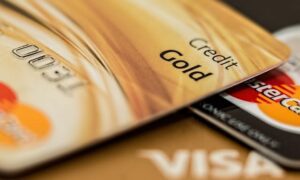Nobody has a perfect credit score and there are always ways you can improve your credit profile, even if your score is good or excellent. If your credit score is low, it is even easier to improve your credit profile as there is more room for improvement.
The great news is some of these tips are free to implement. This guide looks at how to improve your credit score in 5 easy steps.
Register to Vote
If you have problem debts it is common to avoid registering to vote because it makes it easier for debt collectors to locate you.
The problem is your credit score takes a significant hit if you are not on the electoral roll at your address.
If you are concerned about problem debts and companies locating you, you should discuss your financial situation in the first instance with a debt charity like Step Change. Their debt advisers will help you negotiate with your creditors and come to sensible arrangements to repay any outstanding debt.
You can then register to vote and see the marked improvement with your credit score, safe in the knowledge your problem debt is being taken care of.
Take Responsibility for Outstanding Debt
It can be easy to try and shirk your financial responsibilities and effectively bury your head in the sand. It is extremely rare you will be able to avoid a debt company for the six years required before a debt becomes statute barred.
What’s more, during that time, your credit score will be dragged through the mud and makes repairing your credit profile even more difficult.
You should make every effort to discuss your financial situation with any companies you owe money to and come to arrangements to repay the debt. If you feel intimidated by this, enlist the abovementioned Step Change to do it on your behalf.
In most cases, companies will allow you to settle the debt for a lower amount and get the debt cleared from your credit profile. Although settling a debt is not ideal, it has far less impact than defaults and CCJs on your credit score.
Pay Down Credit Cards and Store Cards
Part of your credit score is calculated by the amount of immediate credit you have available to you, commonly known as a credit limit.
For example, if you have £4000 available on a credit card you will have a £4000 credit limit.
The more you spend on that card and the closer you get to your credit limit, the greater the impact it has on your credit score. Ideally you want to ensure you only ever use 25% of any available credit limit.
Store cards are treated in the same way as credit cards, and each will impact your overall credit limit.
Credit card companies are more than happy for you to make minimum payments on your credit card each month because they make more money through interest payments. Wherever possible make large overpayments on your credit card to clear down the balance.
The less money owed on a credit card, the less interest you will be charged on it. Essentially, managing your credit cards and store cards effectively will save you a lot of money and keep your credit score in good condition.
Avoid Credit Checks on Your Profile
At one point or another in our lives, we all need to borrow money.
Whenever we make an application to borrow money a lender will conduct a credit check. They must conduct credit checks by law and will not be authorised by the Financial Conduct Authority if they provide credit without a check.
There are two types of credit check lenders can use: soft credit checks and hard credit checks.
Soft Credit Checks
A soft credit check does not impact your credit score, but it does show on your credit profile behind the scenes. For example, your credit reference agency will be able to see a soft credit check and if you request your data it will show on the information sent to you.
Hard Credit Checks
Hard credit checks are semi-permanent marks on your credit profile and will be viewable to any other lender conducting a credit check.
Your credit score can be impacted heavily by hard credit checks, especially if you have three or more conducted in a three-month period.
Wherever possible avoid applying for credit where hard credit checks are conducted. You should only apply for money if you are sure you will be approved.
Correct Incorrect Information on Your Credit Profile
There are all sorts of errors that can accumulate on a credit profile.
Common errors include:
- Incorrect debts
- Wrong information about linked people,
- Debts that have been cleared still showing as outstanding.
Incorrect Debts
Whether through fraud or mistaken identity, incorrect debts are common.
You should carefully check through your credit report and if you discover incorrect debts, you can raise a dispute with your credit reference agency. Raising a dispute is free of charge and your credit reference agency will investigate on your behalf.
If after the investigation the result is not satisfactory you can make a complaint and escalate to the Financial Ombudsman.
This process can be stressful and time consuming, but rectifying errors on your credit report can help your credit score immeasurably.
Wrong Information about Linked People
When we enter relationships with people and take out joint finance agreements, their profiles will be linked to our own.
This can be problematic if the person being linked to your account has a poor credit record and it can negatively impact your credit profile.
If you have historic links that are no longer applicable or if there is a person linked to your account erroneously, you should endeavour to remove them by following the dispute procedure outlined above.
Debts that Have Been Cleared Showing as Outstanding
If you have cleared a debt but it still shows as outstanding, you will initially want to wait a few weeks in case it is just the credit reference agency catching up with their reporting.
If it has been longer than a month, you should raise a dispute and provide your credit reference agency the final statement from the account as evidence the debt has been cleared.
These issues are the easiest to remedy as you should have conclusive proof immediately available.



































